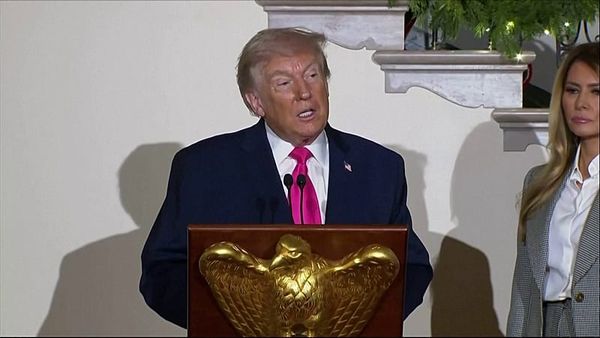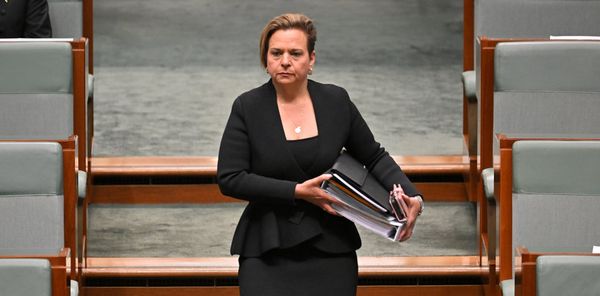Highly controversial changes to Wales' new GCSEs are to go ahead including fewer science and literature qualifications. The first 26 new "made for Wales" GCSEs will include more course work and digital assessment and will be taught from September 2025 and sat in 2027.
The changes are being brought in to fit Wales’ new curriculum. The first pupils to study the new GCSEs will be learners currently in Year 7 aged 11 and 12 who will be in Year 10 in September 2025 and will sit the exams in 2027.
Among the most controversial changes, pupils will no longer study and take three separate science GCSEs. Instead pupils will be able to take either a double or a single science award incorporating chemistry, physics and biology. Science organisations called some of the changes "damaging" and "disappointing". See more on the criticism here.
Read more: Top Welsh high school gets emergency payout to stay afloat as jobs cut amid huge deficit
The regulator said double science award should be seen as the most common and most suitable route for most pupils. The changes have been criticised by the Royal Society of Chemistry and the Institute of Physics, who say it will create a two-tier qualification and disadvantage some pupils.
Candidates taking GCSE The Sciences (double award) will have their performance in biology, chemistry and physics reported separately on their transcripts using A* to G grades.
Approval criteria for the GCSE The Sciences (single award) will be published in October 2023. A that point it will be confirmed whether that new single award qualification will be introduced for first teaching from September 2025 or September 2026.
The current two separate English language and literature GCSEs and the two separate Welsh language literature and language GCSEs will be merged. This has also been criticised.
The current two single maths GCSEs (numeracy and mathematics) will be replaced by one double award . No single maths GCSE will be available.
Pupils sitting most of the new GCSEs will answer the same questions and have access to the full range of marks and grades available for the qualification. There will be tiered assessments in GCSE mathematics and numeracy and GCSE The Sciences - in these subjects, learners will have the choice of sitting either foundation or higher tier papers.
The first set of results is expected to be broadly similar to those that would have been expected under the old GCSE system. The regulator said: "To protect learners and secure fairness, new GCSEs will be designed and assessed to secure broadly similar standards and outcomes to the current set of GCSE qualifications."
The regulator added: "For the first few cohorts of learners taking new qualifications, overall results will be broadly similar to what they are now. Learners should achieve similar grades to what they would have achieved in the current qualifications."
More new made in Wales GCSEs are being introduced from 2026. Entirely new GCSE subjects offered to pupils from that year include British Sign Language, dance and engineering.
All the new GCSEs are designed to be taken by learners aged 14-16 across two years of study – that is, by learners in Years 10 and 11. There will be no short course GCSEs under the new system- currently, short course GCSEs are offered in physical education and religious studies.
Digital and on-screen assessment will only be used where it will "improve validity in the assessment" such as in subjects including computer science, digital technology, digital media and film, music and drama. Qualifications Wales said it is working with the Welsh Government and others to make sure that schools will be able to deliver digital assessments with the technology and resources they have.
For GCSEs in the humanities area of the curriculum, the regulator said it "expects" the awarding body to introduce an element of on-screen examination within the first five years of delivery. "This will allow time for digital approaches to assessment in these subjects to be explored and trialled while giving schools a clear basis on which to plan and invest in their digital capacity."
Announcing the changes Qualifications Wales said the qualifications would "look and feel different". More assessed and course work would mean less exam stress for candidates but the regulator promised the system has been designed so as not to increase work for teachers.
"Following the consultation, we have increased where possible the proportion of non-examination assessment that must be marked by the awarding body, to help address concerns about the potential impact on teacher workload."
In its executive summary for the changes the regulator added: "Increasing the proportion and variety of non-examination assessments in GCSEs will mean that, overall, learners will take more assessment tasks than is currently the case.
"This in turn will result in more assessment-related workload for schools. To ensure manageability, the awarding body must demonstrate that it has carefully considered the implications of its assessment arrangements on school resources and teacher workload. "
The new GCSEs include a mixture of linear and unitised assessment for the final grade. Linear structure means that all assessment is marked and graded at the end of the course. Non-examination assessed units can be completed earlier in the course but must be submitted for marking and grading at the end of the course.
A unitised structure (sometimes referred to as ‘modular’) means that learners are entered for each unit separately, giving them an opportunity to take some units before the end of the course. For unitised GCSEs, at least 40% of assessment must take place at the end of the course - taking a unit early means that schools and candidates have the option to resit that unit once before completing the qualification.
The new curriculum, which the new GCSEs have been designed for, has been taught in all primaries and half of the high schools in Wales since last September. All schools will teach it from September 2023.
Under the new curriculum there is less emphasis on individual subjects. Traditional subjects are grouped into four areas of learning and experience and the reformed GCSEs have been devised to fit in with this.
Qualifications Wales said in a statement: “With the new Curriculum for Wales now being taught in schools across the country, it is vital that qualifications change to reflect what and how learners are now taught. Following extensive consultation, these newly designed GCSEs will replace the existing GCSE offer available to most learners aged 14 to 16 in Wales.”
The changes follow four years of contributions from pupils, subject experts, parents, schools, teachers, colleges, lecturers, universities, employers and others and a public consultation from October to December 2022 which received more than 2,000 responses.
The regulator said the new “made for Wales GCSEs” will offer more choice to schools and the broader range of assessment methods will make them "more relevant and engaging".
Qualifications Wales Director of Qualifications Policy and Reform, Emyr George, said it was the "beginning of an exciting new chapter" for Welsh education: "These new and purposely made for Wales qualifications, co-created to reflect the new curriculum, will look and feel different to the GCSEs that learners in Wales currently take.
“While today’s announcement may be the culmination of a sustained process of collaboration, these decisions are just the beginning of an exciting new chapter for Welsh education. Seeking out the views of teachers, employers, awarding bodies, further and higher education – and of course, most importantly, learners – has been critical in shaping these new qualifications, to ensure that they meet the needs of all stakeholders from 2025."
Marc Belli, Headteacher of The Bishop of Llandaff High School and member of Qualifications Wales’ School and College Leaders’ Group, said: “Qualifications Wales engaged with what we, as school leaders, had to say on these reforms. Ultimately, as leaders we had a range of different opinions on the design of qualifications and, in particular, specific subjects.
“However, I am grateful that we were involved in the process to help understand the potential impact of the proposals on students. Furthermore, Qualifications Wales were ready to explore alternative options for reforming specific subjects.
"I’m really excited to see our first cohort of learners studying for these new qualifications in two years’ time. "
The new GCSEs and when they will come in:
In addition to the qualifications listed for 2025 and 2026, schools will be able to choose from an "inclusive and bilingual range of new and updated qualifications designed to support the curriculum".
The Level 1 Number, Measure and Data qualification will be introduced as part of the full 14-16 qualification offer that will come into effect in 2027.
When new qualifications are introduced, they will replace existing qualifications in those subjects.
Other qualifications will continue to be available alongside the new GCSEs until the full 14-16 qualification offer is introduced
Ian Morgan, chief executive of exam board WJEC said: “We welcome the announcement by Qualifications Wales. These reports provide us with the direction and frameworks to begin the exciting work of creating the new GCSEs for learners in Wales.
"Utilising our 75 years of experience, we will take these decisions forward, employing a co-construct approach to the development of these qualifications. Throughout the process, we will look for opportunities to engage with stakeholders in Wales and beyond, including teachers/lecturers, headteachers, learners, businesses, unions, universities and many more.
"We are committed to creating a suite of exciting and engaging qualifications, which will equip learners in Wales with the skills, knowledge and understanding to compete in the global market.”
Education Minister Jeremy Miles said: “This announcement from Qualifications Wales is the result of extensive engagement with educators over the last three years and represents an important next step in the roll-out of the Curriculum for Wales. The new GCSEs provide certainty to practitioners, learners and parents.
"We will work together to support schools through this change.”







